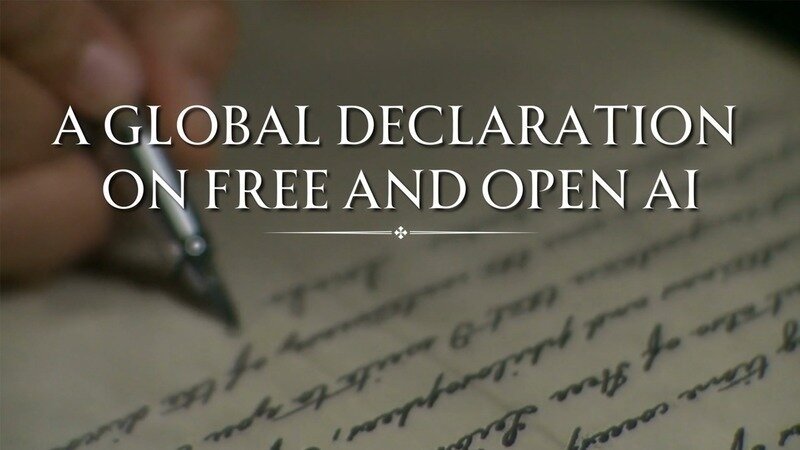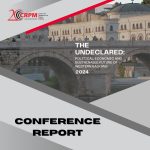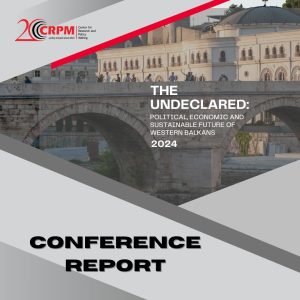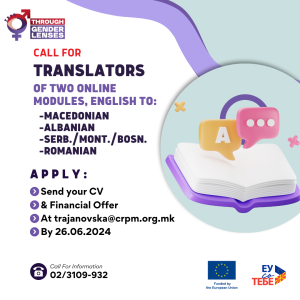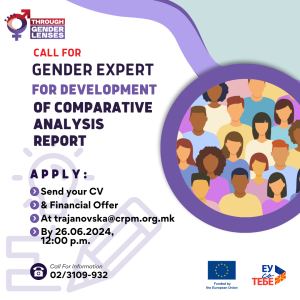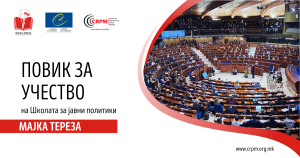The Center for Research and Policy Making Joins Other Think Tanks Issuing “Global Declaration on Free and Open AI”
WASHINGTON – Center for Research and Policy Making and a global network of think tanks led by the Information Technology and Innovation Foundation (ITIF) this week issued a “Global Declaration on Free and Open AI,” calling on governments to ensure that generative AI tools serve democratic ideals and promote global progress. The declaration urges governments to uphold the freedom to create and use AI for legitimate purposes and to promote accountability and trust, not manipulate AI models to distort AI-enabled speech and information.
The Center for Research and Policy Making and its cosigners also invited the public to support the declaration by signing a petition on Change.org.
A Global Declaration on Free and Open AI
To ensure that the Internet delivers positive change for billions of people around the world, the United States has championed the concept of a “free and open Internet.” Spearheaded by figures like Secretary Clinton and President Obama as well as endorsed by dozens of countries, including most recently in the Declaration for the Future of the Internet, it emphasized the importance of democratic societies striving for freedom of expression, the free flow of information, and the ability to connect without undue restrictions.1 Perhaps most importantly, this positive vision of the Internet has provided an intellectual foil to the rise of digital authoritarianism.
As generative artificial intelligence (AI) emerges as another transformative technology poised to significantly impact free expression and economic opportunities, it is crucial that nations commit to similar principles to ensure that these powerful tools serve democratic ideals and promote global progress.
The Significance of Free and Open AI
Generative AI, particularly large language models (LLMs), holds immense potential as an intermediary between individuals and ideas. These models can allow individuals to express and refine ideas, explore information and arguments, and automate communication. These AI tools are primed to quickly become an integral part of every level of society and the economy, from personal communication to domestic politics to global commerce.
However, just as authoritarian regimes sought to limit freedoms online, they may now attempt to control or suppress speech facilitated by generative AI. For instance, China has attempted to restrict AI models that express controversial views threatening the regime’s authority. Democratic nations should commit to a vision of free and open AI to counteract such encroachments.
The concept of “free” in AI does not refer to the cost of the technology but rather the freedom to create and use AI for legitimate purposes. Government restrictions on the use of generative AI for legitimate purposes, whether that be to engage in commerce or political speech, would interfere with an individual’s right to free expression. Likewise, restrictions on the freedom to use and share public code, weights, and training data that underpin AI models would harm both the freedom to innovate and free trade.
The pursuit of freedom in AI is not without challenges and tensions. Misinformation, disinformation, and hate speech are real risks, but combating harmful speech is best achieved through more speech, not less. Instead of stifling ideas, hiding information, or blocking access to AI models, democratic societies should foster an environment that encourages the responsible use of AI. Likewise, security concerns may arise, but it is essential that freedom takes precedence. By preserving the ability to express ideas and access information, nations can uphold the democratic values that have long underpinned our societies.
The concept of “open” in AI refers to transparency. There will be both open and closed AI models, and competition between these different types of models will foster innovation, collaboration, and creativity.
Transparency requires governments to avoid manipulating AI models, such as by prohibiting responses to certain legitimate topics, requiring models to produce certain responses, or intentionally introducing bias into datasets used to train AI models. Transparency promotes both accountability and trust and is important to prevent governments from distorting AI-enabled speech and information.
A Global Commitment to Free and Open AI
To safeguard democratic principles in the emerging AI economy, democratic countries should unite behind a global declaration to free and open AI. Specifically, countries should commit to the following principles:
▪ Promoting freedom of expression: Governments should not restrict using AI to seek, receive, and impart information and ideas.
▪ Protecting freedom to innovate: Governments should not restrict building and sharing AI models and training data.
▪ Protecting free trade: Governments should not restrict the export of AI models and training data beyond those necessary for legitimate security concerns.
▪ Protecting cultural, artistic, and scientific interests: Governments should not restrict the use of AI for cultural, artistic, and scientific creations and advancements, and governments should protect the moral and material interests resulting from the use of AI.
▪ Encouraging responsible speech: Rather than censoring AI, governments should focus on empowering individuals through education, fact-checking initiatives, content provenance standards, and fostering counter-speech mechanisms.
▪ Embracing transparency: Governments should not manipulate AI models, including the input and output of these models.
▪ Empowering inclusive innovation: Governments should support the adoption of affordable, inclusive, and reliable AI tools throughout the economy and society, including through initiatives to accelerate digital transformation, promote AI literacy, and close the data divide.
▪ International collaboration and cooperation: Governments should collaborate with the private sector to develop standards and trade agreements that promote free and open AI—ensuring global access to AI tools and preventing undue restrictions on these tools.
Conclusion
As the world navigates the transformative potential of generative AI, it is imperative that democratic countries commit to a global declaration on free and open AI. By embracing the principles of freedom, openness, and transparency, they can safeguard democratic values and prevent authoritarian regimes from stifling free expression and innovation. In doing so, countries can ensure that AI serves as a catalyst for progress, empowering individuals and fostering a global society that upholds democratic ideals.
Signatorias as of September 14, 2023
▪ Information Technology and Innovation Foundation
▪ Center for Social and Economic Research
▪ Centro Mackenzie de Liberdade Econômica
▪ I-Com
▪ IMANI Center for Policy & Education
▪ Paramadina Public Policy Institute
▪ Start-Up Nation Policy Institute
▪ The Macdonald-Laurier Institute
▪ The Center for Global Enterprise
▪ Fundación Internacional Bases
▪ Tanque de Análisis y Creatividad de las TIC – TicTac
▪ Center for Research and Policy Making
SIGN THE PUBLIC PETITION
▪ Sign on Change.org.

